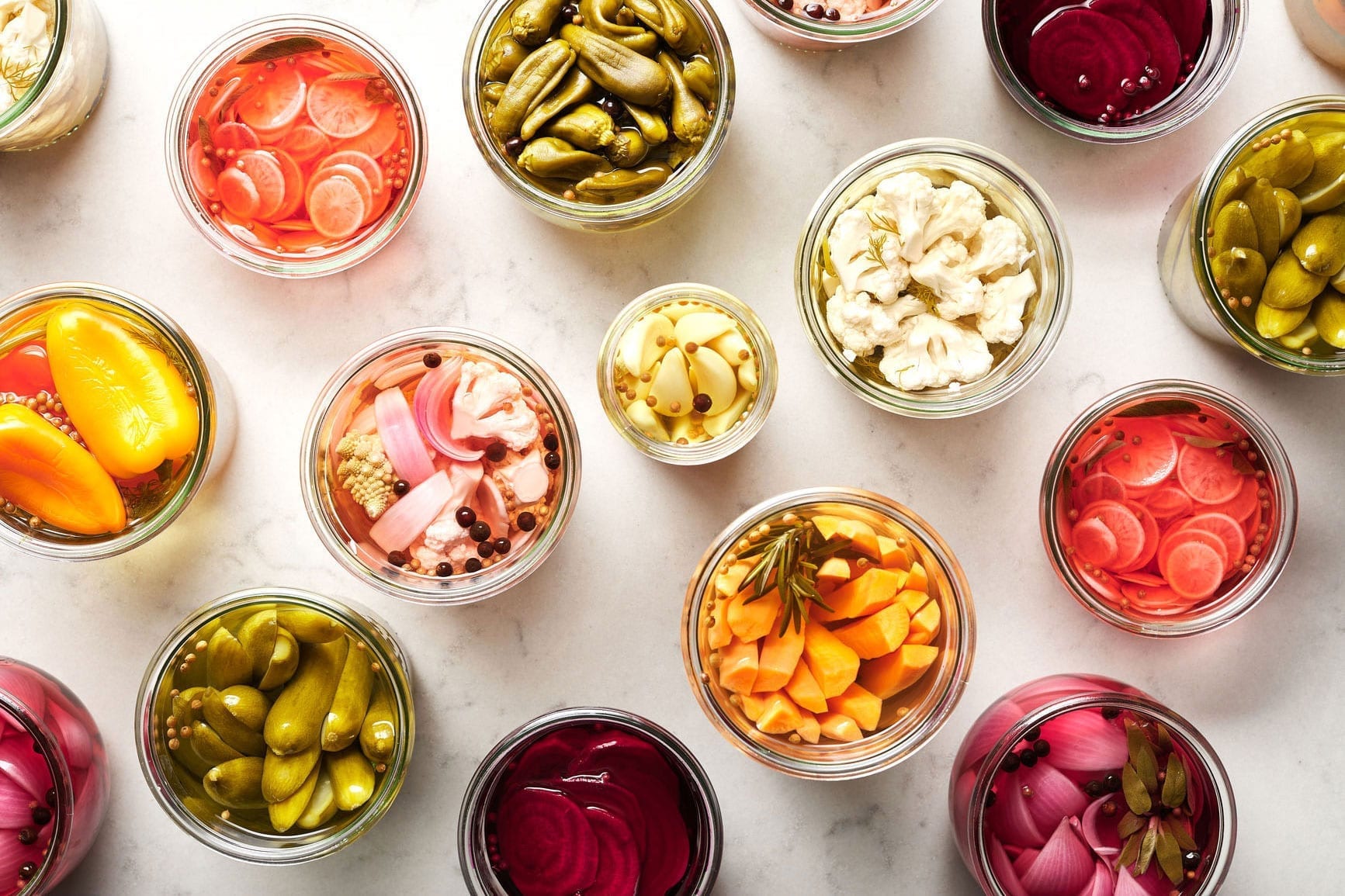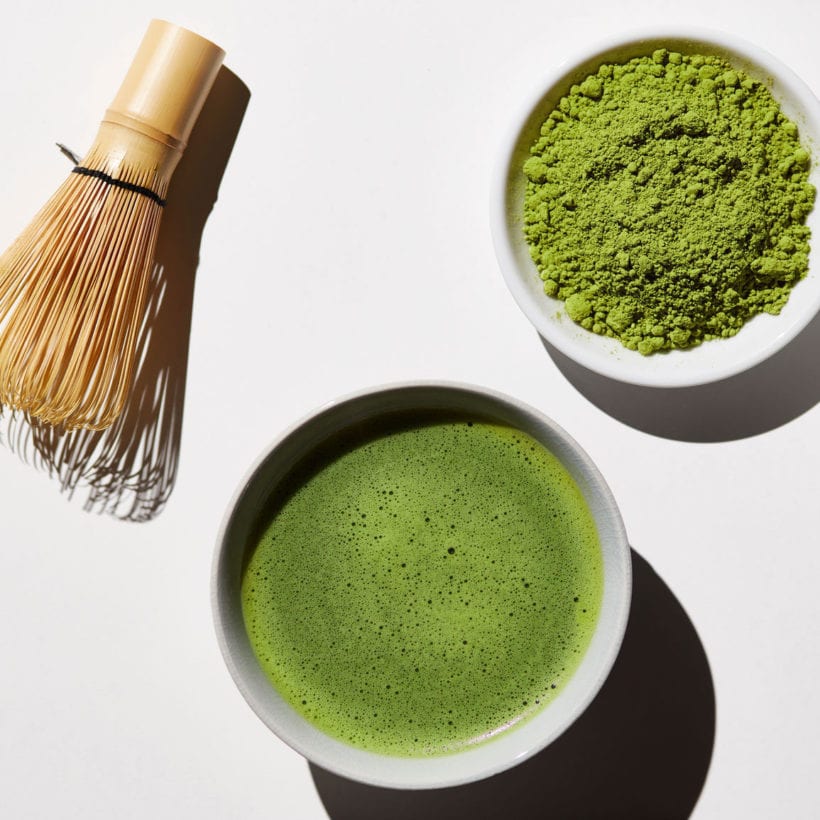There are thousands of lotions and potions on the market that claim to give you clearer, firmer, more radiant skin, and while many of them do practice what they preach, scientists are discovering a strong link between what you put into your body and how that affects your skin, too. In many households, you can now find probiotics next to daily supplements like vitamin C, calcium and iron, and if you open the fridge, you will probably find a few bottles of probiotic-rich kombucha. New research is shining a spotlight on the many benefits of a healthy gut, with probiotics as the star.
The effects probiotics have on gut health are significant, so we asked those that work with them the most — celebrity dermatologists, nutritionists and gastroenterologists.
Go With Your Gut
The digestive system — more commonly referred to as your gut — does a lot for your body. It helps absorb nutrients from the foods you eat and discard the parts your body does not need, but it also can affect your cognition, your anxiety levels, and your body’s inflammatory response. “About 60 to 80 percent of our immune system lives in our gut, and imbalances in the gut’s microbiome (which is primarily made up of bacteria) can lead to digestive issues, feelings of fatigue to depression, thyroid dysfunction, autoimmunity, and a host of skin issues,” says Niket Sonpal, M.D., F.A.C.P., assistant professor at Touro College of Osteopathic Medicine.

There are “good” bacteria (such as Lactobacillus, Bifidobacterium and Saccharomyces boulardii) and “bad” bacteria (like Clostridium difficile, Giardia and certain strains of E. coli) in the gut, and a probiotic’s goal is to add good bacteria back into the digestive system to fight off the bad. “Probiotics are considered live microorganisms that, when ingested, join the bacteria that have already been living in the gut and aims to keep the balance of good organisms and bad organisms in check,” says Marisa Garshick, M.D., F.A.A.D., a board-certified dermatologist at MDCS Medical Dermatology and Cosmetic Surgery Centers. When our gut becomes inflamed, it could show up as an inflammatory skin condition like bacne, rosacea, psoriasis and eczema.
Take Your Pick
Probiotic supplements come in multiple strains, as well as varying amounts of colony-forming units (CFUs). “If you have specific concerns, like immunity, constipation, diarrhea or skin concerns, make sure to take a probiotic with a specific strain that has been proven to aid that condition,” says registered dietitian and nutritionist Keri Glassman.
When it comes to choosing a specific CFU, there is really no perfect number for everyone, but “getting a probiotic that has potency counts of 50 billion CFUs or higher is best,” says Marguerite Germain, M.D., founder of Germain Dermatology in Mount Pleasant, South Carolina. When looking for a generally good-for-you probiotic, Germain suggests looking for the Lactobacillus or Bifidobacterium species. “But, the best strains of bacteria to look for in a probiotic specifically for the skin include Streptococcus thermophiles, Streptococcus salivarius, Bifidobacterium longum and Enterococcus faecalis,” says Germain.
Multiple experts suggest changing the strain of probiotics you are taking every so often. “There is no harm in taking different kinds, and I actually have my patients cycle the supplements they take monthly to take advantage of the different strains and their benefits,” says Sonpal. “Cycling the strains helps increase the diversity of the good bacteria in your gut.”

Although most probiotic supplements are sold without needing refrigeration, experts advise against them. “The best probiotics are those that need to be refrigerated, as many probiotic bacteria are sensitive to heat and moisture,” says Germain. “There are probiotics that contain freeze-dried organisms or probiotic yeast that do not need refrigeration but these, in my opinion, are not as effective.” When shopping for an effective probiotic, look for a glass bottle that is dark or opaque, and a probiotic that contains five or more different types of friendly bacteria or strains, says Charles Passler, D.C., a celebrity nutritionist.
You Are What You Eat
Some experts believe that adding probiotic supplements is not enough to really improve the health of your gut — you need to consume fermented foods, too. “Fermentation occurs when sugars in food feed added bacteria or fungus to create lactic acids or alcohol,” says Passler. Most fermentation in food is called “Lacto-fermentation,” which also creates probiotics, B Vitamins, enzymes and omega-3 fatty acids.
Incorporating probiotics into your diet is pretty easy, especially if you already like Greek yogurt. Look for a yogurt that is labeled with “live and active cultures,” and note that not all yogurts have an adequate number of microorganisms to actually show any health benefits (the suggested amount is 1×109CFU per serving). Other foods high in probiotics include sauerkraut, kombucha, kimchi, beer and wine, green olives, kefir, pickles, miso and tempeh.
We only recommend products we have independently researched, tested, and loved. If you purchase a product found through our links, Sunday Edit may earn an affiliate commission.






